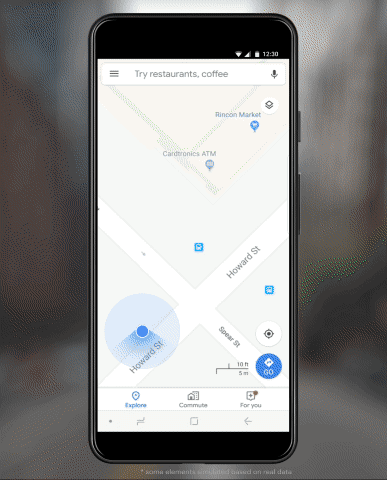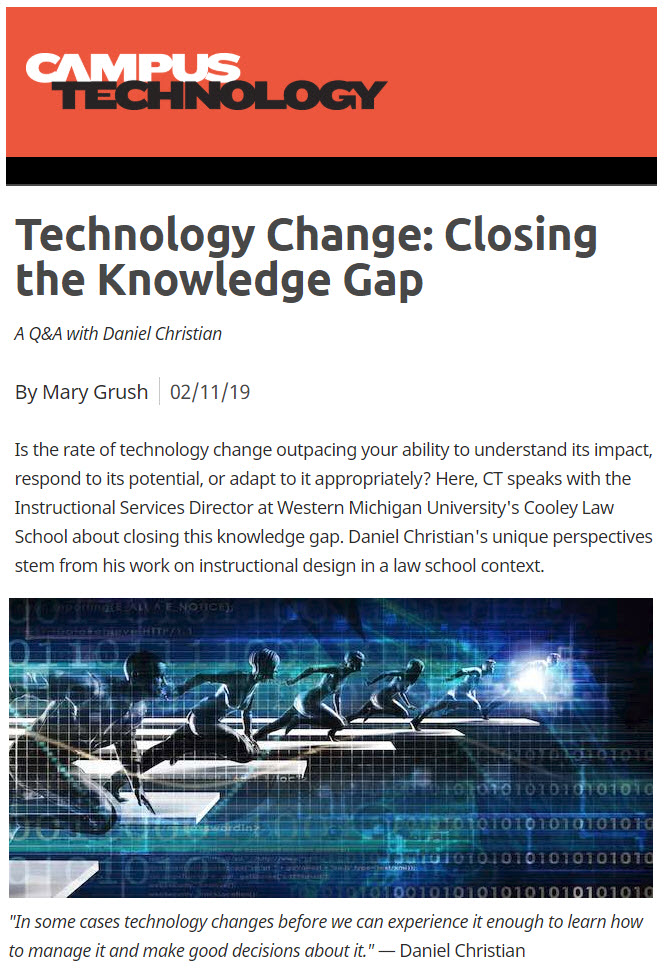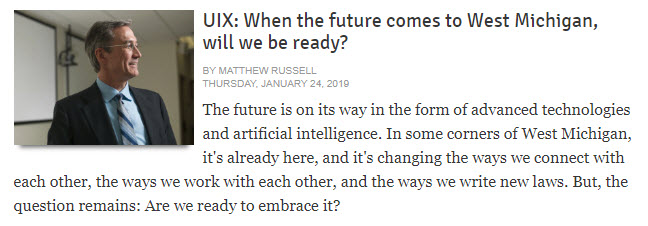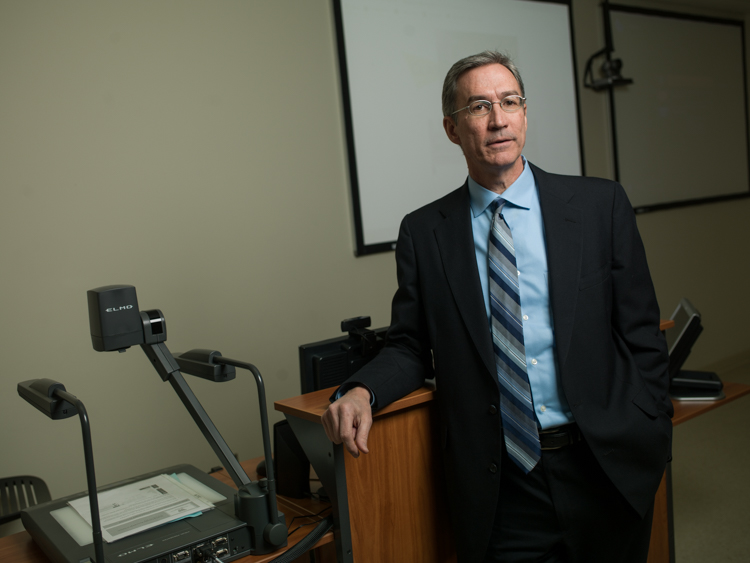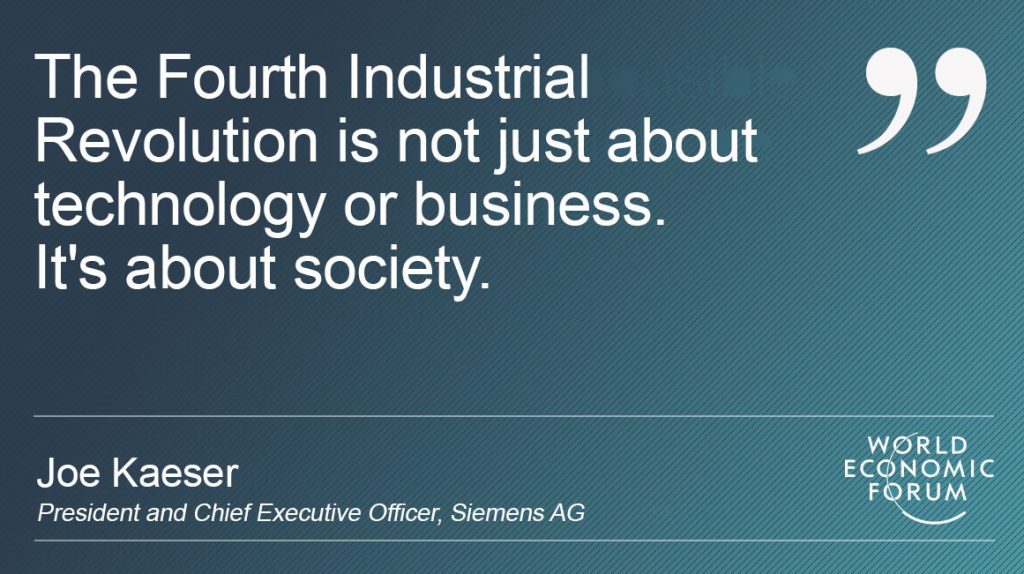Law firms either keep up with tech or get left behind — from abajournal.com by Gabriel Teninbaum
Excerpts:
I spend a lot of time thinking about a version of that classic interview question where applicants are asked to envision their future. But, instead of thinking about my own future, I think of the legal profession’s future. If you haven’t done it, give it a try: What will legal work look like in 15 years?
There is a reason to think it’ll look very different from it does now. E-discovery software now does the work once handled by new associates. Legal process outsourcing (LPO) companies have pulled due diligence work, and much more, to offshore locations (and away from domestic midsize firms). LegalZoom—now valued at $2 billion—is drawing millions of consumers every year choosing to handle legal matters without local attorneys.
If your vision includes the idea that the biggest legal employers may someday not even be law firms, then you’re correct. It’s already happened: The largest private provider of legal services in the world today is no longer a multinational law firm. It’s Deloitte, the Big Four accounting firm. Looming super-technologies—like AI and blockchain—are somewhere on the horizon, with the potential to upend legal work in ways that some believe will be unprecedented.
Also see:
Students create immersive videos to enhance criminal justice courses — from news.psu.edu by Emma Gosalvez
Excerpt:
Immersive technologies such as 360-degree videos could revolutionize the future of forensic science, giving police and criminologists a tool to visualize different crime scenes and ultimately, become better investigators. Through a Berks Teaching & Learning Innovation Partnership Grant, Penn State Berks students in the course CRIMJ 210: Policing in America are learning to create 360-degree videos of crime-scene scenarios.
These videos are viewed by their peers in CRIMJ 100: Introduction to Criminal Justice to learn about topics such as self-defense, defense of others, and defense of property.
“The project transforms student learning on two levels: It allows students to engage in creative collaboration related to a course topic, and students get to ‘experience’ the scenarios presented by the 360-degree videos created by their peers,” said Mary Ann Mengel, an instructional multimedia designer for Penn State Berks’ Center for Learning & Teaching.









